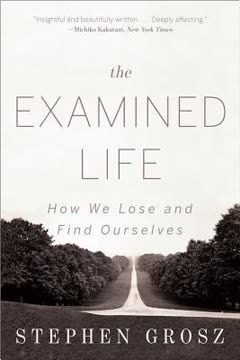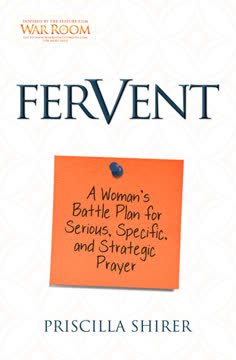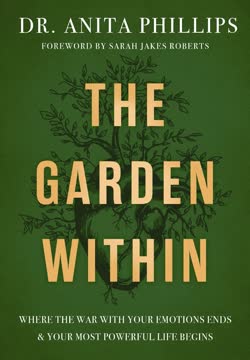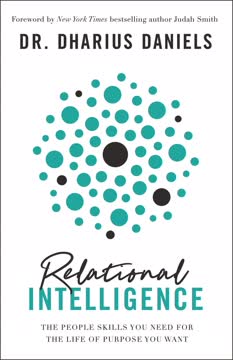Key Takeaways
1. Relational Intelligence (RQ) is Crucial for Fulfilling Your Purpose
Whether we realize it or not, our relationships are “purpose partners.”
Relationships are destiny. Your relationships profoundly shape your future, influencing your spiritual, physical, financial, emotional, and professional progress. Nothing significant is achieved in isolation; people are essential for carrying out your calling, acting as "purpose partners" who either propel you forward or hold you back. Recognizing this inherent impact is the first step toward a life of purpose.
Defining RQ. Relational Intelligence (RQ) is the ability to discern who should be in your life, what role they should occupy, and then align them accordingly. It's about understanding that while everyone deserves love and value, they shouldn't necessarily be treated the same way or given the same level of access. RQ combines intellectual capacity (IQ) with emotional intelligence (EQ) to foster the people skills needed for a purposeful life.
God's design. Relationships are God's idea, and He is the ultimate expert on how to manage them for fruitfulness and fulfillment. Just as God provided Eve as a "helper suitable for him" to Adam, He sends people into our lives to meet needs, both directly and indirectly. Approaching relationships with intentionality and intelligence, rather than "rolling the dice," ensures we steward these divine connections wisely.
2. Define Your Relationships into Four Distinct Categories
Relational intelligence is the ability to discern if someone should be a part of our lives and what place they should occupy, and then align them accordingly.
Categorize for clarity. To effectively manage your relationships, you must define them into distinct categories, understanding that each serves a different purpose and requires a different level of investment. This isn't about assigning importance, but about appropriate alignment to prevent frustration and ensure mutual benefit. Jesus himself modeled this tiered approach with his disciples.
The four categories:
- Friends: Relational assets who offer unshakable character, unconditional love, unbridled honesty, unmovable reliability, and unceasing encouragement. They get your life, access, and influence, helping you carry out your calling. This is a covenantal, not transactional, relationship.
- Associates: Individuals with whom you have periodic or consistent association, often due to intersecting schedules (e.g., coworkers). They are "tweeners"—not friends, assignments, or advisors. Expectations for reciprocity and emotional attachment are lower, and transparency should be limited.
- Assignments: People projects—trainees, mentees, advisees—in whom you make deposits with few expected withdrawals. This relationship exists primarily for you to provide mentorship, guidance, and coaching. While it can be demanding, it's about adding value to their journey.
- Advisors: Individuals who serve as mentors and offer guidance in specific areas of your life, usually for a limited time. In these relationships, you are the assignment, benefiting from their experience, education, and exposure without paying the same price. They act as an "umbrella," providing covering and acting as catalysts.
Evolving relationships. These categories are not static; relationships can evolve. A person might shift from an associate to a friend, or a friend might become an assignment. Recognizing these shifts is crucial for maintaining healthy dynamics and adjusting your investment and expectations accordingly.
3. Discernment Starts with Honest Self-Reflection and "Fruit Inspection"
Thus, by their fruit you will recognize them.
Pause and reflect. Relational intelligence begins with the willingness to pause and engage in nonjudgmental internal conversation. Your emotions are messengers, alerting you to what's happening in your heart and relationships. Ignoring them leads to operating in the dark, making blind decisions, and misplacing people.
Key reflection questions:
- Where am I? Understand your current emotional and spiritual season.
- What do I need? Be specific about the type of relationships and value you require.
- What do I have? Assess the current contribution people are making, not just past actions.
- What do I need to do? Determine if realignment, removal, or pursuit is necessary.
Inspect their fruit. Beyond self-reflection, actively evaluate the "fruit" of those in your relational circle. This isn't about judging their character as good or bad, but assessing their actions and behaviors to determine if they are good for you in this season. While "we're both Christians" is a common myth, true evaluation focuses on how people relate and treat you, not just their spiritual status.
Grace and intuition. Inspecting fruit should be done with honor and grace, recognizing that a person's current fruit isn't always a reflection of who they are becoming. Sometimes, intuition and the Holy Spirit's prompting may lead you to extend grace, allowing someone to "stick around" despite imperfect fruit, especially if they are actively working to change. However, their growth should not come at the expense of your well-being.
4. Courageous Conversations are Essential for Aligning Relationships
It’s our emotional intelligence that will allow us to overcome all of the competing emotions that we feel when it comes time to sort through these things.
Speak your truth. Once you've reflected and evaluated, the next step is often a conversation. While not every minor adjustment requires an announcement, significant shifts in relational categories demand clear, courageous communication. These conversations are an expression of the Golden Rule, allowing you to treat others as you would want to be treated.
Framing difficult conversations:
- Moving someone away (e.g., friend to associate): Focus on your needs and recalibration, not their flaws. Use language like, "I'm reassessing things in my own life, and I need to make some adjustments in my relationships right now." This reduces accusations and centers on your stewardship.
- Pulling someone closer (e.g., associate to friend): Emphasize honoring them and their admirable characteristics. Express vulnerability and your desire for a deeper connection. "I see you as trustworthy and genuine, and I would love to develop a friendship with someone like you."
Acquiring an advisor. When seeking an advisor, clearly communicate what you admire about them, where you are in your life, and how their expertise can add value. Be open to various forms of mentorship, demonstrating humility and respect for their time and knowledge. This requires courage to make the ask.
Love and empathy. All these conversations must be driven by love and empathy. Speak the truth in love, considering how the message will be received and the potential emotional impact. Prepare for potential negative reactions, understanding that hurt feelings can reveal deeper wounds. Your emotional intelligence will help you navigate these moments, ensuring you act with compassion without being imprisoned by others' feelings.
5. Set Clear Boundaries to Protect Your Well-being and Purpose
Boundaries define us. They define what is me and what is not me.
Boundaries are for you. After conversations, you must establish clear limitations. Boundaries are not about controlling what others do, but about defining what you will permit or tolerate in a relationship. They protect you from the impact of others' actions, safeguarding your mental, emotional, and physical health. Jesus modeled this by setting limits with his disciples and crowds to replenish himself.
Understanding boundaries:
- Ownership: Boundaries clarify where you end and another begins, fostering a sense of ownership over your life and choices.
- Protection: They act as fences, keeping what nurtures you inside and what harms you outside.
- Responsibility: Setting boundaries means taking responsibility for your choices and their consequences, rather than waiting for others to change.
Practical implementation. If a coworker is untrustworthy, a boundary might be refusing to share personal information, thereby limiting the conversation. If someone is consistently condescending, you might limit your exposure to them or remove yourself from the room when it occurs. These actions advocate for your well-being without necessarily needing a verbal announcement, though you should be prepared to explain if asked.
Overcoming resistance. Resistance to setting boundaries often stems from a need for validation, a desire to please others, or a misunderstanding of self-sacrifice. This fear of losing relationships or causing discomfort can lead to misaligned connections. Shift your mindset from "fear what will happen if I do this" to "fear what will happen if I don't do this" to empower courageous action.
6. Elimination is a Necessary Act of Stewardship, Not Selfishness
No matter how much it costs to let people go, the price is far greater to let them stay.
When to remove. Sometimes, repositioning a relationship isn't enough; a person must be eliminated from your relational orbit. This difficult decision is necessary when a relationship becomes counterproductive, emotionally toxic, spiritually regressive, or physically harmful. It's not about being unloving or cruel, but about recognizing that maintaining the relationship, in any form, is no longer in the best interests of those involved.
Stewardship, not selfishness. Viewing elimination correctly means understanding it as an act of stewardship over the life God has given you. It's a decision to remove someone and reposition them in a space where they can pursue relationships that better serve their own best interests. This frees both parties to pursue God's next and best for their lives.
Criteria for elimination:
- The relationship is consistently counterproductive or toxic.
- It leads to spiritual regression or emotional harm.
- It involves abuse (physical, spiritual, emotional).
- Setting limitations or realigning does not provide adequate protection.
The risks and the process. While there's a risk of misjudging someone (confusing a "Peter" with a "Judas"), don't let fear deter you when your heart knows it's necessary. The process for elimination should involve three "Ps":
- Pray: To achieve emotional sobriety, act with empathy, and seek divine guidance for the most sensitive approach.
- Plan: To determine the best time, place, and words to use, ensuring the conversation is seasoned with grace.
- Perform: To act courageously despite conflicting emotions, allowing a "superior fear" (what happens if I don't do this) to drive your decision.
7. Become the Kind of Friend You Wish to Attract
A man who has friends must himself be friendly.
Self-assessment is paramount. While much of relational intelligence focuses on assessing others, it's equally vital to evaluate your own behavior and participation in relationships. Ask yourself, "Am I who the person I am looking for is looking for?" This self-reflection is crucial for attracting and sustaining healthy connections.
Three types of friends:
- The friend you'd like to be: You give what you want to receive (e.g., support if you value support). However, this may not always meet your friend's actual needs.
- The friend others want you to be: You might be tempted to give people what they want, even if it's not in their best interest. Joab, who helped King David cover up his sin, exemplifies this dangerous dynamic.
- The friend God needs you to be: This friend prioritizes truth and the other person's needs over their wants. It means loving the person more than the relationship, even if it means speaking hard truths or risking the friendship. Adam's silence when Eve ate the forbidden fruit is a stark reminder of the cost of not being this kind of friend.
Ruth as a model. The story of Ruth illustrates the power of becoming the person you need to be. Ruth's loyalty, strength, and resilience attracted Boaz, a secure, successful, and God-fearing man. To attract a "Boaz," you must cultivate the qualities of a "Ruth." This principle applies across all relationships: if you desire honesty, be honest; if you desire support, be supportive.
Purposeful contribution. Self-assessment helps you identify where you are a gift in others' lives. True fulfillment comes from living out your purpose, which involves making unique contributions to others. By continuously evaluating and improving yourself, you not only enhance your own life but also become a magnet for the healthy, purposeful relationships God intends for you.
Last updated:
Review Summary
Relational Intelligence receives overwhelmingly positive reviews, with readers praising its practical advice on categorizing and managing relationships. Many find it eye-opening and helpful for self-reflection. The book's biblical foundations and clear writing style are appreciated. Readers highlight its value in setting boundaries, understanding different relationship types, and improving communication. Some criticism notes its focus on leadership roles and potential oversimplification. Overall, reviewers recommend it as a transformative guide for personal growth and healthier relationships.
Similar Books








Download PDF
Download EPUB
.epub digital book format is ideal for reading ebooks on phones, tablets, and e-readers.





